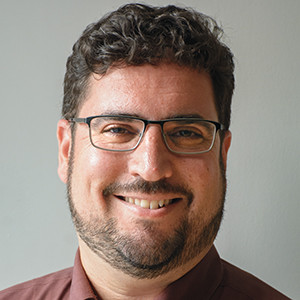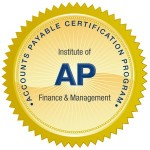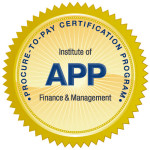
- Membership
- Certification
- Events
- Community
- About
- Help
In this engaging episode, join Jeff and Jess as they unpack the top trends and challenges in Accounts Receivable discussed live at IOFM’s Fall Conference and Expo. Together, they explore their innovations driving AR forward and share practical strategies to optimize AR processes. Perfect for AR professionals looking to stay ahead, this episode offers real-world insights and actionable advice.
Jeff and Jess will highlight major themes from the conference, from automation to evolving compliance standards in AR. They’ll discuss innovative solutions to common AR challenges, with a focus on improving cash flow and reducing payment delays. You’ll be inspired by their personal stories and experiences on overcoming obstacles and enhancing AR efficiencies in their roles.

Jeff Haller
Jeff has been building companies and fueling his entrepreneurial spirit for over three decades. His expertise spans several industries, including consulting, information technology, and telecom - all of which led to the founding of DataServ in 1994 - the first Software as a Service (SaaS) provider. Jeff witnessed the enormous amount of time and money companies were investing in Enterprise Content Management (ECM) software for installation, customization, deployment and rollout. In response, he created DataServ to deliver the value of SaaS within the ECM market. Since its founding, Jeff has led the company through many growth phases and three recessions – all while successfully building and maintaining strong client relationships. He is frequently a speaker at AP and Shared Services industry events and, as an alumnus of the University of Missouri – St. Louis, he serves on the Leadership Council of the College of Business Administration. Jeff was also the former board president of the Foster & Adoptive Care Coalition, which focuses on eliminating the time kids spend in foster care by quickly finding homes.

Jess Scheer
Jess is an award-winning business reporter focusing on financial operations. He has spent more than 25 years creating must-have content for professionals in the finance arena. He serves as Executive Editor of the Institute of Finance & Management (IOFM) and the Cash Management Leadership Institute (CMLI).
Grace Chlosta: Welcome to the IOFM podcast. This is a podcast for accounts payable and accounts receivable professionals who want to stay in the know with current AP and AR trends and ideas. We'll be interviewing professionals in this space on a wide variety of subjects, including automation, artificial intelligence, career growth, compliance, leadership, and much more.
00:00:31
Today we'll be interviewing Jeff Haller. Jeff has been building companies and fueling his entrepreneurial spirit for over three decades. His expertise spans several industries, including consulting, information technology, and telecom — all of which led to the founding of DataServ in 1994 – the first Software as a Service (SaaS) provider.
Jeff witnessed the enormous amount of time and money companies were investing in Enterprise Content Management (ECM) software for installation, customization, deployment and rollout.
00:00:59
In response, he created DataServ to deliver the value of SaaS within the ECM market. Since its founding, Jeff has led the company through many growth phases and three recessions – all while successfully building and maintaining strong client relationships. He is frequently a speaker at AP and Shared Services industry events and, as an alumnus of the University of Missouri – St. Louis. Jeff was also the former board president of the Foster & Adoptive Care Coalition, which focuses on eliminating the time kids spend in foster care by quickly finding homes. Today he'll be interviewed by IOFM's own Editor, Jess Scheer.
Jess Scheer: We're here with Jeff Haller, CEO of DataServ. We just came out of an AI session. What are some of the key takeaways that you're hoping folks implement when they get back to the office next week?
Jeff Haller: Thanks, Jess, for having us. It was a great presentation. We had a lot of interaction, and that's what we love to see in those things.
00:01:53
The title was about hype versus reality, and there were a ton of questions because I think everybody's looking at it now as this thing they have to do, and their question is: How and when, and what do I do?
So we tried to break it down into some very practical steps for them. I think the takeaway was to go back and take action, but don't go too far. We said, "Start small. Take a small project and then make it smaller."
We also suggested that they be ready to pivot, because you never know if it's going to work until you try it. But when it doesn't work after you try it, you should try something else; don't call it a failure and walk away.
Jess Scheer: Absolutely. So what are some of the practical and tactical tips, beyond sort of small wins and building momentum?
Jeff Haller: Yeah, we said two things. The biggest one was: Break it down into small pieces, and then also analyze the risk of that. That was a huge part of it because if you can minimize those risks, then it's worthwhile to try it, and your risk goes down and your success goes up. Even if it fails, you say, "We knew it was low risk." Everybody loved that idea and they were running out of the room to say, "Hey, we should try and change our approach." So I thought that was quite telling.
00:02:56
Jess Scheer: Absolutely. We have a number of AI sessions, and some were just talking about ChatGPT – free tools, right? The risk is: I asked the wrong question and I wasted five minutes of my time, right? It's not like this massive investment. But AI has been built into your tool for a while now.
Jeff Haller: Yeah, we started with AI about 27 years ago, first in the capture process around AP, and that's been a great lesson for us, a learned lesson. We call it "traditional AI" now because it's not ChatGPT, but it's been very productive for us because it gives our humans a different view of the captured data before they actually push it out into their ERP, a client's ERP. So, for us, it's always been about that sort of cautious, human-validated approach, but that's also made it much smarter.
00:03:45
Jess Scheer: That's an important fact because when we talk about automation, sometimes automation can make bad processes simply worse, faster. But if you've got an AI that's learning along with you, not only can the human identify the mistakes and hopefully not make those mistakes away, but AI is identifying and can identify red flags. "Hey, you've asked me to do this 17,000 times in the last two seconds, but I think there's a problem."
Jeff Haller: Yes, if it seems risky or the data output doesn't look right. So that's really kind of the next-generation to me of people's application of it, to try to make it self-healing or self-analyzing. That takes a lot of knowledge going in, so that's what a suggestion we made to everybody was, "Start with your technical plan for what the technology will do, but then look at it from the standpoint of data quality as well, and figure out: What is the data quality output we're looking for? Is this risk-free data?" Like you said with ChatGPT, you can ask it anything. It doesn't really affect you. You can always decide not to use it.
00:04:38
But when you systematize that and say, "We're going to do 17,000 transactions/minute," or whatever it is, you put that through there at high volumes, the effects can be much bigger, amplified. So the data quality then allows you to, to me, weed out those errors that it does make, early, and correct them. Once you've corrected them, we see it get better and better over time.
Jess Scheer: Great. So IOFM and DataServ have been partners for years. We've been certifying your solution consultants with our training. Can you just talk us through the value that it provides to you guys?
00:05:09
Jeff Haller: Yeah, it's been a great partnership, and we look forward to coming every year to the events, which was how we got started. But as soon as you all introduced that program for the solution consulting particularly – so it's really designed for our use as a provider – we signed up. We've had many, many employees go through there. I think the last count was 32 or 36, something like that, of our employees. So I would say is about half of our staff actually is certified.
We like it because it gets them onboarded quickly and ramped up quickly, but they like it because it makes them feel like they really understand where the users' perspective is coming from, and that's really the standpoint they need to do their job.
00:05:46
We're a very service-based organization, very service-oriented, so having that viewpoint that they can be a partner to our clients, and then run into them here and talk about the same topics and be able to talk on the same page has been quite valuable. So everybody that's taken it so far really has enjoyed it. They complain a little bit. It's a test.
Jeff Haller: It is and it's meant to be hard, right? It wouldn't be valuable if it wasn't. But I think one of the things is you get to commiserate with your fellow practitioners that have been challenged – because none of us have taken exams in – I'll speak for myself – 30 or 40 years.
Jess Scheer: Right, that's what I hear a lot. "I used to do this in college. I'm not really used to taking tests."
Jeff Haller: But I think it's been valuable from that standpoint, too, just the learning curve. It helps get them ready for learning more at DataServ. We have a ton to learn. It's not your run-of-the-mill job. You don't walk out of school and say, "I know how to do this." So we do a lot of training anyway, but this is just one piece of our orientation, and then we use it on an ongoing basis as well because they can get refreshers over time by coming here and renewing and getting more knowledge and sharing that with others that do the same thing.
00:06:53
Jess Scheer: Absolutely. When we're talking about the onboarding process, being able to speak the same language as your customers, as the practitioners, is crucial. One of the things that makes our certification different – there's really two types of certification in this industry. One is just the validation. You've been doing the job for 20 years and you know it inside out. We don't do that. We're not interested in how long you've been doing it, because what we want to do is help onboard folks faster.
So what we do is we take best practices. When we updated the AR certifications, for example, we went out to 55 organizations and said, "What are you doing that's great – ?"
Jeff Haller: Today?
Jess Scheer: " – today that's working?" This isn't just IOFM being smart. It's our members being smart, taking the best of the best practices we find and sharing those, and making sure that there's something practical and tactical that you can bring back to your organization.
And that fact that, as a solution provider, you have that ability then to talk the same language, share the same lessons learned, I think helps tremendously.
00:07:48
Jeff Haller: Oh, yeah. I think that's what we count on. We promise our clients that we're going to bring best practices, and when they ask us, "Where do you get these from?" our quote is "IOFM," because we're members. We've been members for a long time, and we share this stuff with practitioners every day. If we have questions, we can call you. There's the Help Line. There's the Question & Answer. So all of those features really help us. There's the reports that we got here at the show again this year for the benchmarking. We use that stuff very much daily in our business.
But, to me, the orientation that we do – in their first 90 days on the job, they're supposed to get their certification – that's part of what we want from it, is we want them to understand: Here's where you go for best-practice knowledge. So it really becomes a better partnership early on for our team.
Jess Scheer: Fantastic. Transition time – very subtle. The next thing is a round differentiation. We talked about the support that you guys provide. At our conferences, we have 50 to 100 different vendors. One of the biggest challenges that our practitioners have, that customers have, is trying to differentiate between those vendors, trying to figure out what makes folks different. What makes DataServ different?
00:08:59
Jeff Haller: Yeah, thanks for asking. That's a great question because we see that a lot, too. Our teams go out and talk to people every day, and what we hear is: "You all look the same." I laugh and I say, "Yeah, you're kind of right now because it's evolved a lot and people have picked up and done… So you can't go wrong completely. All the vendors are good, solid companies. They've been doing this for a long time."
And so what we look at is: What makes the difference in your success as a user? For us, that looks like (and has always looked like) more than software. It's really been about the services we wrap around the software, whether that be best practices, whether that be an analysis that we do of their current process, whether that be training and education. We build change management, for example, into every project, and clients really appreciate that because they aren't so good at that.
00:09:44
These AP decisions are big decisions. You and I have talked about that before. It's a very big decision, maybe a once-in-a-career decision, and so when somebody gets into it for the first time they don't really even know what to ask, much less what to do. So we try to build all of that into a sort of full-service approach.
Clients have told us afterwards that it was extremely beneficial to them. It's been very helpful to them. They weren't expecting it to be as good as it is. We're trying to get the word out now that we're really good at that, and this is what you should expect from all of your providers. I say that about ERPs. I say that about anything else people are buying. To me, software is really not about code. It's really about: What does it do for the business?
Jess Scheer: Right. So there's actionable steps at the end. It's also about relationships. I think part of the challenge sometimes is we get so lost in the outputs of the product that we lose track and lose sight of the fact that what we're trying to do, at the end of the day, is help the customer do things better, right?
00:10:40
Jeff Haller: That's right. And they need help. They need that help. They often don't know. This comes down to the relationship because they also don't know exactly what to expect out of this new project, right, because they haven't done it before, where we've done it many times. So they really want to know: "What should I expect? What's that going to look like when we're done? What are the KPIs I should be shooting for?" And so we help them define that right up front, and I think that really builds that relationship, and then we stay with them forever, too.
We have a very strong commitment to client success. A lot of companies in software, in general, have been taking away client-success resources, I think just to cut costs and so on. We feel like that's something we could never do because we are so dependent on that ongoing relationship with those clients due to the economic nature of our business, where our business model is SaaS, true software as a service, so we're there, providing this service ongoing, they're paying for it ongoing, and we feel like we have to provide value on an ongoing basis and continue.
00:11:33
Jess Scheer: Thank you so much, Jeff.
Jeff Haller: Hey, it's been great to talk to you.
Grace Chlosta: Thank you so much for listening to the IOFM podcast. Remember to head on over to the Member Forum to discuss today's episode and provide ideas for our next one. And to stay up to date on IOFM's current events, both in-person and virtually, head on over to IOFM.com.
Continuing Education Credits available:
Receive 1 CEU per hour of listening time towards IOFM programs:

 Receive 1 CEU per hour of listening time towards maintaining any AP and P2P related program through IOFM! These programs are designed to establish standards for the profession and recognize accounts payable and procure-to-pay professionals who, by possessing related work experience and passing a comprehensive exam, have met stringent requirements for mastering the financial operations body of knowledge.
Receive 1 CEU per hour of listening time towards maintaining any AP and P2P related program through IOFM! These programs are designed to establish standards for the profession and recognize accounts payable and procure-to-pay professionals who, by possessing related work experience and passing a comprehensive exam, have met stringent requirements for mastering the financial operations body of knowledge.
Continuing Education Credits available:
Receive 1 CEU per hour of listening time towards IOFM programs:

 Receive 1 CEU per hour of listening time towards maintaining any AP and P2P related program through IOFM! These programs are designed to establish standards for the profession and recognize accounts payable and procure-to-pay professionals who, by possessing related work experience and passing a comprehensive exam, have met stringent requirements for mastering the financial operations body of knowledge.
Receive 1 CEU per hour of listening time towards maintaining any AP and P2P related program through IOFM! These programs are designed to establish standards for the profession and recognize accounts payable and procure-to-pay professionals who, by possessing related work experience and passing a comprehensive exam, have met stringent requirements for mastering the financial operations body of knowledge.
What are you waiting for?
